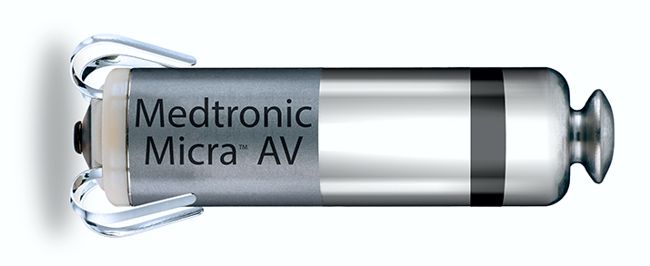
Image Credit: Medtronic
People often ask me as a device engineer what kind of pacemaker would I get if I needed one. They are usually surprised when I tell them that it would be a traditional can with thick transvenous leads.
I feel vindicated by the letter that FDA sent to healthcare providers on November 17, which states:
“The overall risk of cardiac perforation associated with leadless pacemaker implantation appears similar to the risk associated with traditional transvenous pacing systems. However, the Medtronic Micra leadless pacemaker premarket clinical studies suggested major complications related to cardiac perforation appeared to be more severe for patients who received a leadless pacing system compared to patients who received a transvenous pacemaker. The FDA continues to evaluate outcomes in patients who receive leadless pacing systems. Information from real-world use suggests that cardiac perforations associated with Micra leadless pacemakers are more likely to be associated with serious complications, such as cardiac tamponade or death, than with traditional pacemakers.”
